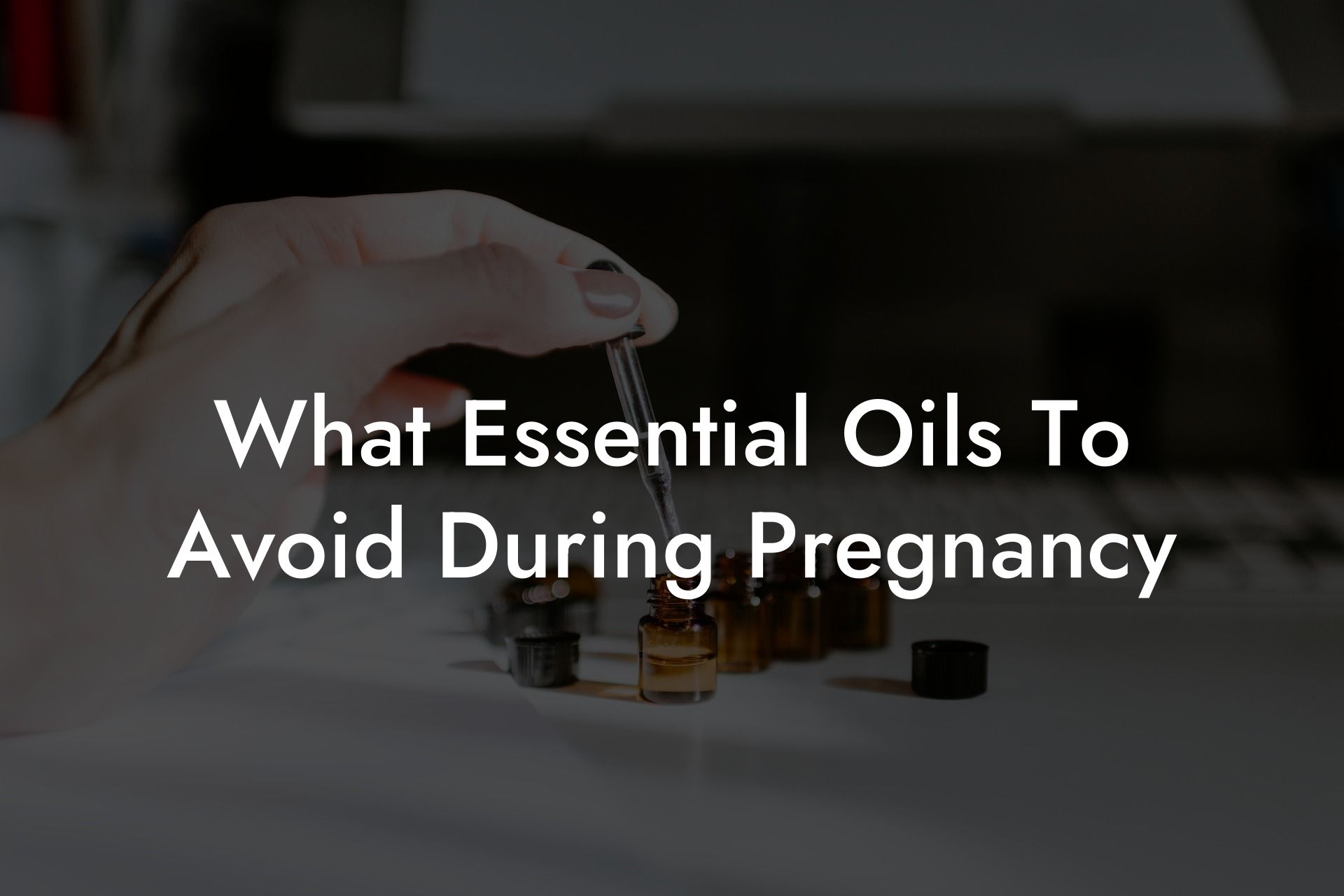Pregnancy is a beautiful and transformative journey that brings about many changes in a woman’s body. For soon-to-be moms, finding ways to maintain their well-being is crucial. Essential oils are often touted as helpful for promoting various aspects of health and wellness. However, not all essential oils are safe for pregnant women. In this article, we will explore some essential oils to avoid during pregnancy, what makes them harmful, and some safer alternatives to consider.
Table of Contents
- Why are Some Essential Oils Unsafe During Pregnancy?
- Basil (Ocimum basilicum)
- Cinnamon (Cinnamomum zeylanicum)
- Clove (Eugenia caryophyllata)
- Jasmine (Jasminum grandiflorum)
- Myrrh (Commiphora myrrha)
- Rosemary (Rosmarinus officinalis)
- Sage (Salvia officinalis)
- Essential Oils to Avoid During Pregnancy
- Safe Essential Oil Alternatives for Pregnancy
Why are Some Essential Oils Unsafe During Pregnancy?
During pregnancy, a woman’s body undergoes significant changes to support the growth and development of her baby. As a result, some essential oils that might be safe for non-pregnant individuals could pose potential risks to pregnant women and their babies. These risks include:
– Increasing uterine contractions, leading to preterm labor or miscarriage
– Crossing the placental barrier, potentially affecting fetal development
– Competing with hormones required for a healthy pregnancy
It’s essential to speak with your healthcare provider before using any essential oils, particularly if you’re pregnant.
Essential Oils to Avoid During Pregnancy
To help ensure your safety and that of your developing baby, it’s crucial to understand which essential oils to steer clear of during pregnancy. Some of these oils include:
Basil (Ocimum basilicum)
Basil oil is known for its potent antispasmodic properties, which can stimulate uterine contractions and potentially increase the risk of miscarriage.
Cinnamon (Cinnamomum zeylanicum)
Cinnamon essential oil has emmenagogue effects, meaning it promotes blood flow to the pelvic area and uterus, potentially leading to contractions or miscarriage.
Clove (Eugenia caryophyllata)
Clove oil may also increase the risk of uterine contractions and pose a danger to the developing fetus.
Jasmine (Jasminum grandiflorum)
Jasmine essential oil is known to stimulate contractions and should be avoided during pregnancy, especially in the first and second trimesters.
Myrrh (Commiphora myrrha)
Myrrh can induce contractions and possibly result in premature labor or miscarriage. Its use should be avoided during pregnancy.
Rosemary (Rosmarinus officinalis)
Rosemary oil, containing camphor, can compete with progesterone, disrupt hormone balance, and stimulate menstrual bleeding, all of which can be harmful during pregnancy.
Sage (Salvia officinalis)
Sage essential oil has properties that can induce uterine contractions and should be avoided to reduce the risk of miscarriage or preterm labor.
Please note that this is not an exhaustive list of essential oils to avoid during pregnancy. Always consult your healthcare provider before using any essential oils.
Safe Essential Oil Alternatives for Pregnancy
Fortunately, there are some essential oils that can be safely used during pregnancy with proper dilution and guidance from a healthcare professional, such as:
– Lavender (Lavandula angustifolia): Calming, promotes sleep, and eases aches and pains.
– Chamomile (Anthemis nobilis): Relieves stress and anxiety, and soothes digestive discomfort.
– Ylang Ylang (Cananga odorata): Provides emotional support, promotes relaxation, and enhances mood.
– Sweet Orange (Citrus sinensis): Uplifting and energizing, and can help with nausea and morning sickness.
– Frankincense (Boswellia carterii): Supports emotional balance, reduces anxiety, and assists with skin concerns.
What Essential Oils To Avoid During Pregnancy Example:
Imagine you are a pregnant woman experiencing stress and anxiety. Using essential oils such as lavender or chamomile, diluted and diffused in a room, can help create a relaxing environment for you and those around you. However, using potentially harmful essential oils like jasmine or rosemary could have detrimental effects on your pregnancy, increasing the risk of contractions or miscarriage.
Navigating the world of essential oils during pregnancy can feel intimidating, but with the right knowledge and guidance, you can maintain a healthy routine and promote a smooth pregnancy journey. By avoiding certain essential oils and choosing safer alternatives, you can continue to experience the benefits of aromatherapy while protecting your growing baby. Don’t forget to share this article with others to help spread the word about essential oil safety during pregnancy. For more information on essential oils, aromacology, and our range of Artisan Essential Earth Oils, head over to Oshu Oils and explore our other comprehensive guides as well as our carefully curated oil blends to enhance your overall well-being.





















